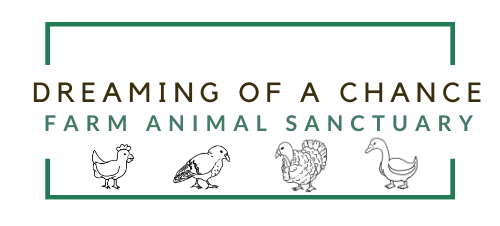Pigeons As Indoor Pets!
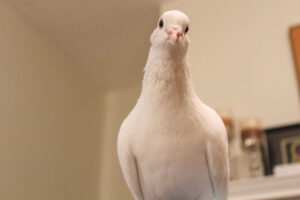
Pigeons are super smart and a lot of fun! As one of the original domesticated birds, they adapt very well to home life and quickly make people fall in love with them. If you are looking into keeping a pigeon as a pet and want to know how to get started, this article is for you!
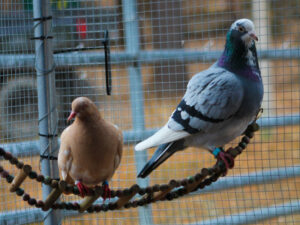
The Enclosure Itself
Probably the first thing that comes to mind when you are looking to get a pet pigeon is the enclosure. For starters, lets look at cages. Large dog cages (48″ x 30″ or bigger) work well for a set up where the pigeon is away from other animals such as dogs and cats. For places, where they would be in the same room as those animals, you will need thinner slats between the bars so that the dog, cat, or other animal couldn’t hurt the pigeon through the cage. Similar size cage should be used. Please note that pigeons prefer more space horizontally than vertically meaning that adding height to a cage isn’t sufficient – they need more space to walk around.
After you get the cage set up, you will need to add a food bowl, waterer, plenty of enrichment, and some sort of bedding – we like unscented puppy pads for the cages.
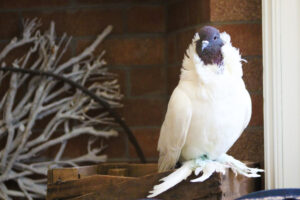
Time Outside the Cage
#1: No other species should be out in the room at the same time as them as they could potentially be hurt by bigger animals than themselves or hurt animals that are smaller than them.
#2: Check to make sure that you don’t have anything dangerous out that the bird may get into such as poisonous plants, little bits of metal, or toxic food on the floor.
#3: Either pull down the blinds or make sure that the pigeon can see that there is a window there. Window collisions can be very dangerous to the bird.
Very, very important is to NEVER FREE FLY! Free flying is extremely dangerous for pigeons. They are huge targets for predators and even in a matter of minutes, pigeons may be attacked by a predator. Unfortunately, if this happens there is little you will be able to do to stop it even if you are watching the whole time. Please, please – do not free fly. If your bird gets startled also, they may be lost forever.
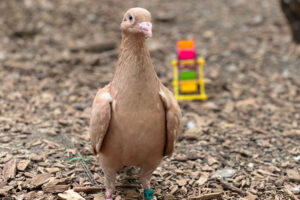
Enrichment
As mentioned before, pigeons are extremely intelligent. As such, they do best with a lot of enrichment.Some great ideas for enrichement include perches of all different types, heights, sizes, chicken swings, toy xylophones, dog puzzle toys, certain parrot and baby toys, stumps, foraging mats, and nest boxes. Pigeons also require a decent amount of attention if they are kept solo. Eventually, they tend to bond to their owner and see them as their companion. If you aren’t around a lot to be present with your pigeon, it is reccommended that you adopt them a companion from a shelter near you. The cage aspects mentioned before will accommodate two pigeons fine. They will likely enjoy nesting together so be sure to grab some fake eggs to swap the real eggs out for.
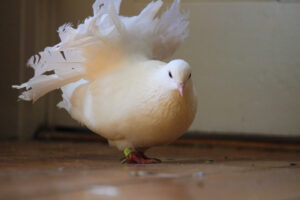
Picking Out Seed
There are a few things to consider when looking for seed to buy. One thing to consider is the number of seed types there is. Generally, low quality seed mixes will have only 3 or 4 seed types. It is good to have a variety of seeds to be complete in vitamins and minerals.
Another thing to consider is if the seed mix has a lot of fillers. Corn is one ingredient that is often used as a big filler. While some corn is fine in a diet, it should not make up the majority of the seed mix.
Speaking of corn, some seed mixes have too large a seed sizes for all pigeon breeds. Watch out for seeds that have big seeds in them like whole corn.
Finally, it is good to check up on recall history for brands to see if they are historically pretty safe brands or not.
We personally like Hagen pigeon and dove seed as well as Versele Laga no corn mix.
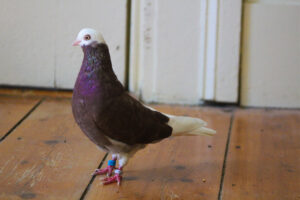
Finding An Avian Vet
A lot of rescue pigeons when found are very sick as they have gone through so much. It is important to get them checked out by a veterinarian who can assess their health, run a fecal test on them, and treat them if necessary. Even if the bird was gotten through a rescue, you still will need an avian vet for future check ups and potential emergencies. Here are some search tools to help you find accredited bird vets near you.
Also you can try searching for an avian vet near you or exotic vets. For poultry, you can try searching for a farm animal vet as well.

Other Considerations
#2: Your bird will benefit from routine fecal tests to make sure that they do not have internal parasites. Risk is lower indoors but it is best to still test.
#3: A vitamin/mineral supplement may be needed if your pigeon doesn’t eat all of their seed mix. Talk to your vet about if this is necessary for your scenario or not.
#4: Certain toys can have dangerous parts for birds. These include but aren’t limited to dangles inside bells on swings or toys that they can potentially rip off and get lodged in their mouth as well as certain clips on toys.
#5: External parasites are easy for pigeons to get as you can carry them in on your clothes potentially from wild birds when you go hiking or walk outside. Check your birds for any signs weekly,
#6: Monthly or more frequent health checks are the best way to monitor that your birds are safe. Consider looking them over head to toe to check for any issues.
